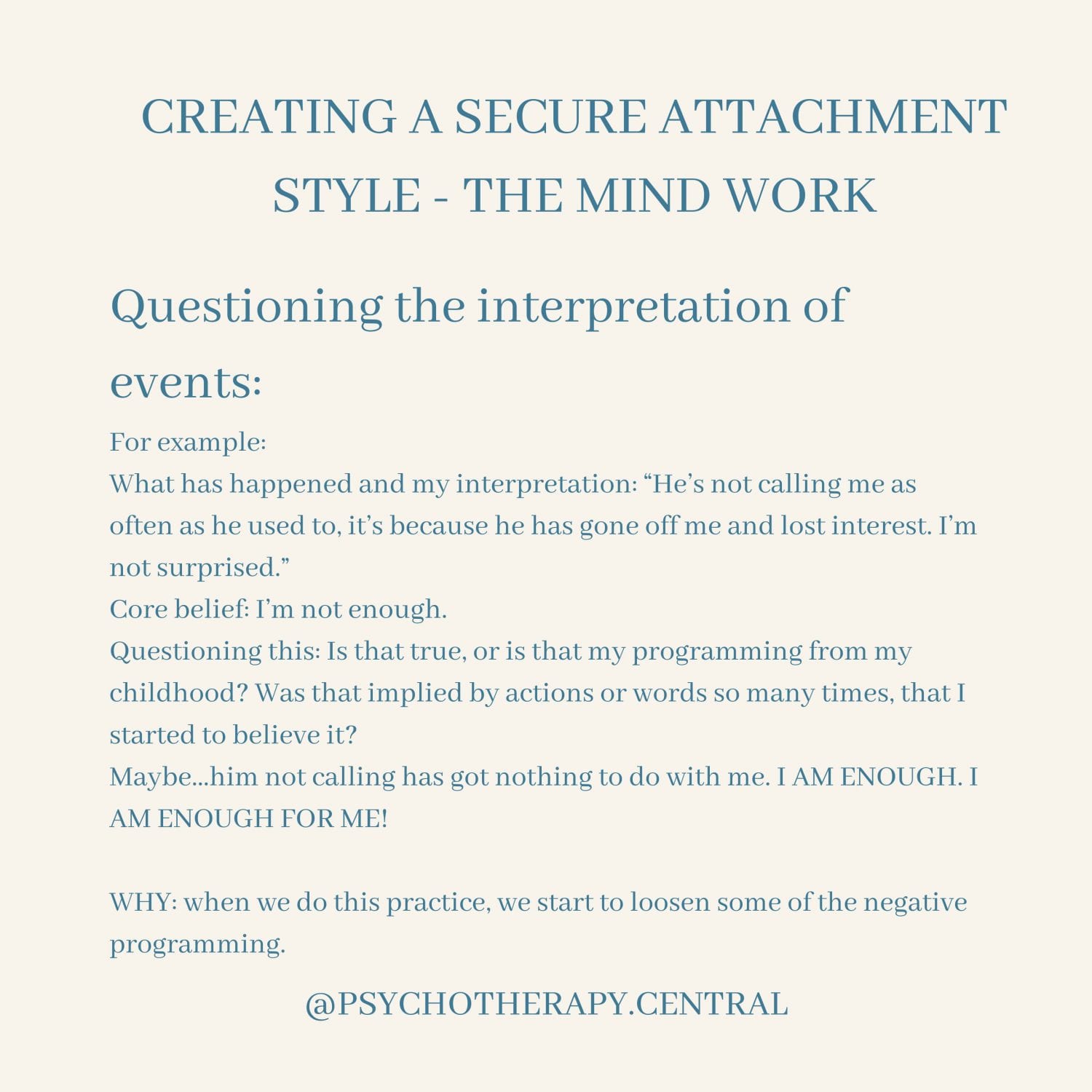I like to think of the mind as a piece of play dough that can be moulded over time. It is so easy to think “I can’t change what my mind says!” Know that you CAN because I have done it again and again and seen so many people do it over time. Yes, it takes practice, and some thoughts can be harder than others, but you CAN learn to change your thoughts.
Our thoughts about a situation are not always accurate and it is VERY helpful to sit down and think through an event like this:
- Situation – what happened – factually with no emotion
- My thoughts about the situation
- Other possible thoughts about the situation
- What were your feelings?
- Other possible feelings?
- Your behaviour depends on your thoughts and feelings – how did you behave?
- What else could you have done?
This is based on CBT, one of the most researched techniques in psychotherapy. It is one of the many tools you can use to work with your mind.
Some schools of thought say that all emotion comes from our thinking. This is why working on the mind is so important, as a side benefit our emotional body becomes more stable, as our secure home becomes stronger and stronger.
How does working with the mind create a safer home base and thus increase our secure attachment style?
Have you ever been in a negative thought spiral that has got out of control, like the one described in the tile? You ruminate, go over and over the event, get more and more upset…ever done this? I know I have. This is all in our mind, the faster we can get ourselves out of this thought loop the better. I have found CBT practices to be very useful.
The other tool I use daily to work on my mind is meditation. There is so much research available now confirming the physical and mental benefits of meditation. I love how science is today proving what the mystics have old have known for eons.
I have attached some references in case you are interested.
- Greeson, J. M. (2009). Mindfulness research update: 2008. Complementary health practice review, 14(1) 10-18.
- Hofmann, S.G., Asnaani, A., Vonk, I.J.J. et al. The Efficacy of Cognitive Behavioral Therapy: A Review of Meta-analyses. Cogn Ther Res 36, 427–440 (2012). https://doi.org/10.1007/s10608-012-9476-1


